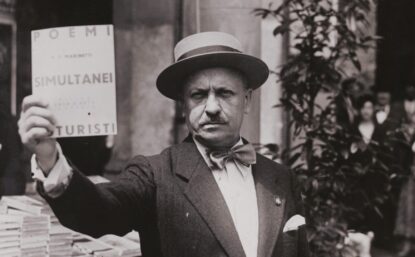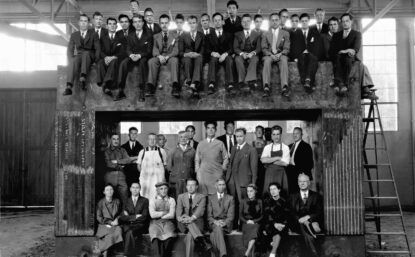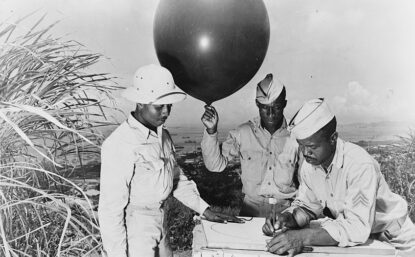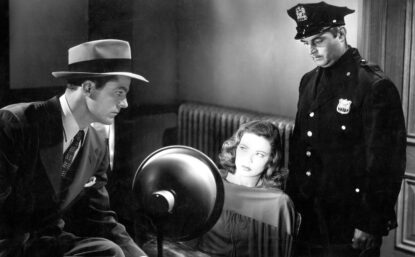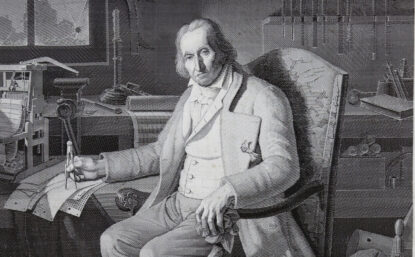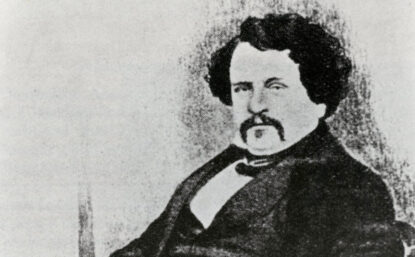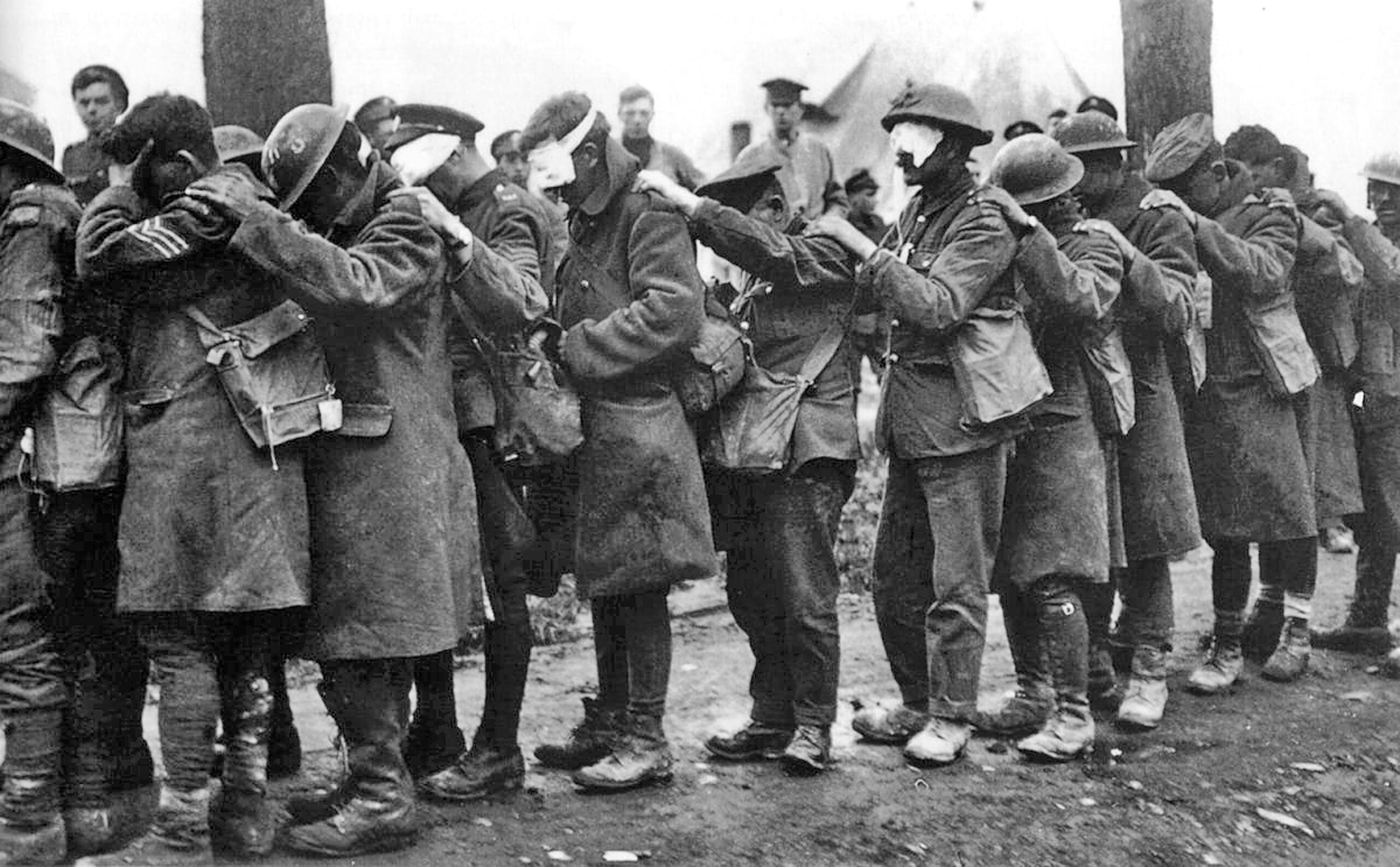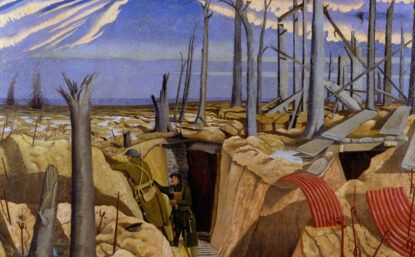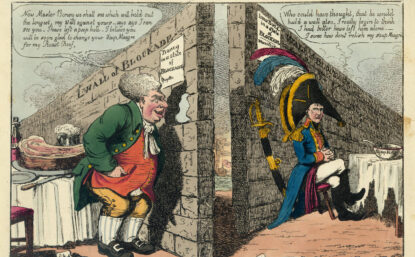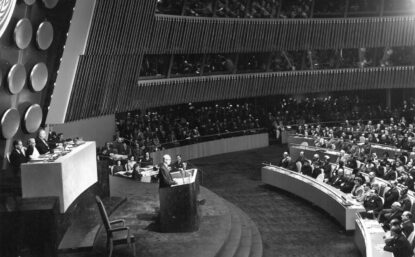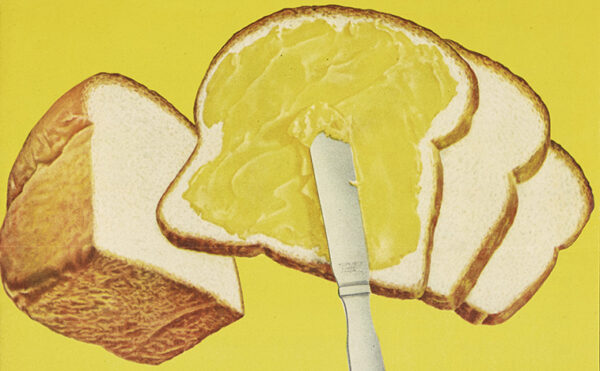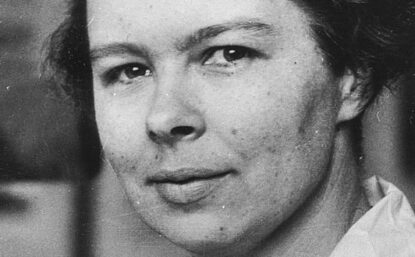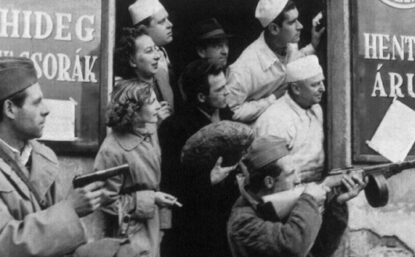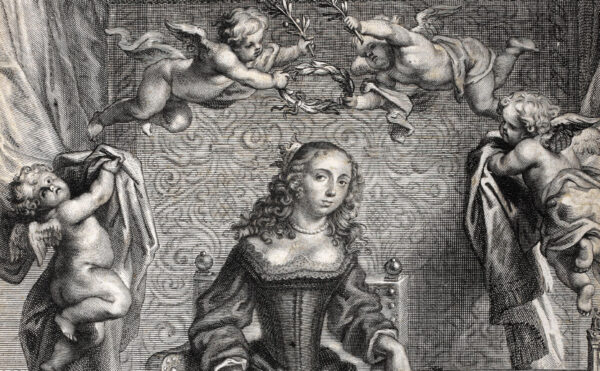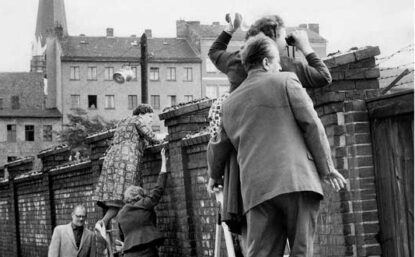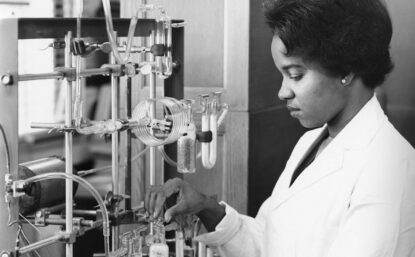Distillations magazine
People & Politics
Science in a world of rules, regulations, and conflict
Food Fight
Filippo Marinetti thought he could change Italian society through its collective belly.
Large and in Charge
Ernest Lawrence championed the idea of science done collectively. But he failed to champion his own scientists during the Red Scare.
Political Ills
Smallpox, polio, and the political and scientific haggling behind two medical triumphs.
Weather Service
Before these men became successful chemists they were World War II meteorologists.
Stranger Than Fiction
Is there any truth in truth serums?
The French Connection
Inventor Charles Babbage drew inspiration from an unusual source for his analytical engine.
Hard-Headed Man
When William Aspdin stumbled on the secret to modern concrete, it was the first and one of the few fortuitous steps in an unsteady life.
A Brief History of Chemical War
For more than 2,000 years human ingenuity has turned natural and synthetic poisons into weapons of war.
Chemical Warfare: From the European Battlefield to the American Laboratory
In 1916 the United States sent its first official observer to the trenches of Europe, where he found a new kind of warfare.
The Blockade Runner
During the Napoleonic Wars one man in particular kept scientific knowledge flowing between enemies.
Politically Unreliable: The State v. Otto Wichterle
Faced with political opposition to his work, the Czech chemist created the first wearable soft contact lens using a set of toys, a hot plate, and a gramophone motor.
Atoms for Peace: The Mixed Legacy of Eisenhower’s Nuclear Gambit
Following World War II, President Dwight Eisenhower attempted a risky balancing act between war and peace, secrecy and transparency.
Butter-in-Law
Pity butter’s poor relative, margarine, which has shifted from outlaw to savior to villain in the space of 100 years.
The Invisible Woman
Katharine Burr Blodgett was the first female scientist hired by General Electric. Her work was truly invisible, deliberately so.
Behind the Curtain
Three Hungarian scientists who survived the Nazi occupation of their country and escaped Soviet oppression.
First Lady
In 1667 Margaret Cavendish was the first woman allowed to visit the all-male bastion of the Royal Society, a newly formed scientific society. Who was this woman?
Over the Wall: Six Stories from East Germany
When Communist East Germany built a wall across Berlin, it created two different cities, two different countries, and for scientists two different careers.
For Love of the Lab
Reatha Clark King wanted to be a research chemist, so she made the journey from the segregated South to Illinois. At the University of Chicago her dreams came true.

